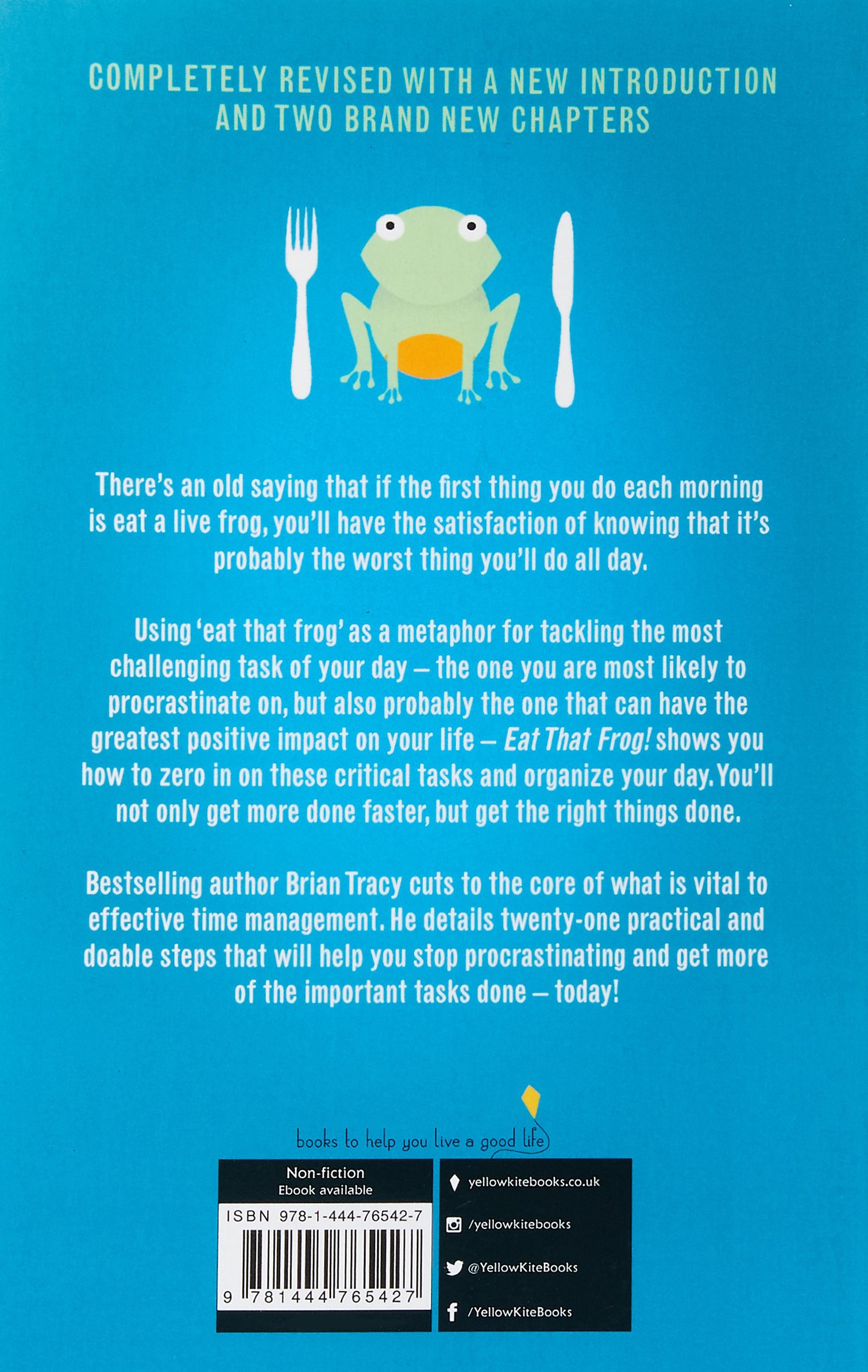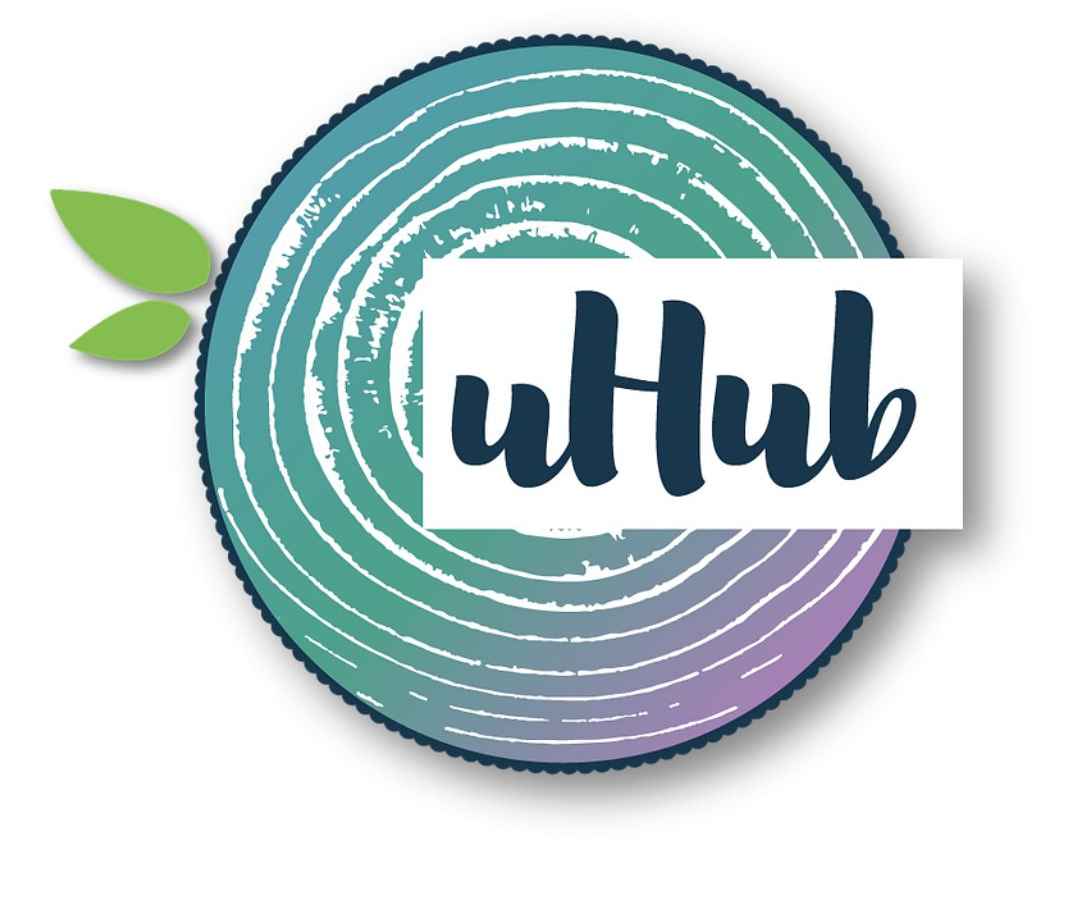Reviewed By Cara Swanston - Registered Member MBACP Adv. Dip.
Book Review Eat That Frog, Brian Tracy
26 April 2023
uHub Therapy Centre - BangorEat That Frog takes the idea that if the first thing you do each day is eat a frog (important/difficult tasks), then you'll have the satisfaction of knowing that it's probably the worst thing you'll do all day.

Martyn Henry
Dip. Couns, MBACP
When you get that out of the way, you'll reap the benefits and find the rest easier to accomplish. There are 21 steps explained in detail and simple enough to follow and use daily or weekly. While aimed at productivity in work, I've found that these exercises can be useful for personal development and in counselling work.
Synopsis
"There just isn't enough time for everything on our 'To Do' list - and there never will be. Successful people don't try to do everything. They learn to focus on the most important tasks and make sure they get done.
There's an old saying that if the first thing you do each morning is to eat a live frog, you'll have the satisfaction of knowing that it's probably the worst thing you'll do all day. Using 'eat that frog' as a metaphor for tackling the most challenging task of your day - the one you are most likely to procrastinate on, but also probably the one that can have the greatest positive impact on your life - Eat That Frog! shows you how to zero in on these critical tasks and organize your day. You'll not only get more done faster, but get the right things done.
Bestselling author Brian Tracy cuts to the core of what is vital to effective time management: decision, discipline, and determination. In this fully revised and updated second edition, he provides brand new information on how to keep technology from dominating your time. He details twenty-one practical and doable steps that will help you stop procrastinating and get more of the important tasks done - today!"
I picked up this book through a combination of personal interest and helping clients work on dealing with procrastination and motivation issues - putting off important or difficult tasks in favour of easier or more interesting things to do.
I enjoyed this book and found it helpful. I feel it would appeal to a range of people, especially if you are looking for practical tools that you can try right away, if you feel ready for change but aren't sure where to start or if you need a little inspiration in regards to your goals. If procrastination or motivation is holding you back, personally or professionally, you'll find good exercises in here to help.
Small steps in the right direction lead to change
Most of us have something we want to change in our lives but might not know where to start. This book has a useful exercise to break this down, by creating a list of goals we feel will make a difference, then breaking those goals into manageable steps we can do each day. In therapy I have found that focusing on a goal and taking action on that, no matter how small, creates a sense of motivation and progress that can have an ongoing impact on well being. For example, choosing to journal for 10 mins a day, practising gratitude, connecting with people, or getting out of your comfort zone.
Focus on one thing at a time
The book offers exercises to manage time better, by picking one priority to focus on at a time. We can often get overwhelmed by the amount of what we have to do, adding to any stress and anxiety we may have. By accepting the idea that we will never get everything on our list done, the key is to prioritise the tasks that will make the greatest difference right now. Therapeutically for example, if we're in an ongoing difficult situation what can we do now that will help reduce my anxiety and regain a sense of control/calm myself.
Challenge limiting beliefs and negative self talk
The thoughts that limit us are looked at too. In dealing with constraints, a tip is asking questions such as, 'What is holding me back? What is keeping me from getting started?' Asking questions of ourselves and jotting down what comes up is a good reflective exercise and I find it can result in creative solutions to problems. There is also a focus on the quality of our thoughts and self-talk on motivation levels, for instance “it is your version of events that largely determines whether they motivate or demotivate you”. Looking at our thoughts and how we talk to ourselves can really colour how we feel day-to-day, and we can learn to adjust these thoughts to encourage ourselves instead.
Focus on the Here-and-now
Similarly, breaking goals down to the next achievable step, before moving on to the next, helps keep things manageable. It also helps us to be less future-focused, which is where anxiety often takes us. Thoughts that are focused far into the future can lead to us imagining the worst case scenario. Some exercises in this book can help reduce this, by bringing our focus to what we can do next, here-and-now.
5 Stars!


Interested in giving it a go? Check out what other readers are saying about Eat That Frog!: Get More Of The Important Things Done Today, by Brian Tracy.
Featured Organisation
Local
uHub is a counselling service with a multi-disciplinary approach to emotional health and well-being. We provide a safe and confidential environment where feelings can be explored. We work from an integrated approach, psychodynamic/person centred which we tailor to meet the needs of each individual so they can get the best possible service and experience from their counselling.
Get Inspired Further
we all experience grief differently
Like most people I have experienced my fair share of loss, each death has affected me differently and through utilising support networks available to me, and my training as a counsellor, I have come to realise that there are no rules, and that grief is personal.
Teens, Social Isolation & Screentime
As parents we want the best for our children, and we can spend a huge proportion of our time worrying about what they are doing especially when it comes to screen time and shutting themselves away in their bedroom.
Compassion Fatigue
“As long as I can remember my mother has been this strong, proud, courageous woman and now all I see is a shadow of who she was. It terrifies me and makes me think about things I wish I didn't have to think about. I'm irritable with my mother, my children and I don't like myself most of the time.”




